Exosens is a global leader in nuclear detection technology, delivering high-performance neutron and gamma radiation detectors for safety-critical applications across the nuclear industry. Our legacy stretches back to the 1940s, built on the combined expertise and innovation of two industry pioneers: Centronic Limited and Photonis Nuclear Instrumentation. By uniting these proven lineages under one brand, Exosens continues to provide reliable, field-proven solutions for radiation monitoring, nuclear instrumentation, and reactor safety—backed by decades of technological leadership and application experience.
Backed by a dedicated R&D team and a rigorous quality framework aligned with ISO 9001, ISO 19443, RCC-E, ASME NQA-1, and HAF604, Exosens provides scalable, adaptable radiation detection systems for safety-critical applications. Our solutions are trusted for in-core instrumentation, area and environmental monitoring, and fuel management, offering exceptional sensitivity, durability, and ease of integration. Whether you require a standalone detector or a fully integrated monitoring system, Exosens delivers reliable, future-ready technology that meets the highest standards of nuclear safety and performance.
Learn more about radiation detector and nuclear instrumentation
Need some answers? Ask our experts!
Contact usGamma detectors
Neutron detectors
Mineral insulated extensions
Gamma detectors
Gamma detectors operate by converting gamma radiation into detectable electrical signals
Read more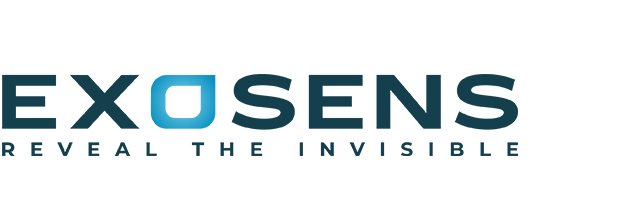
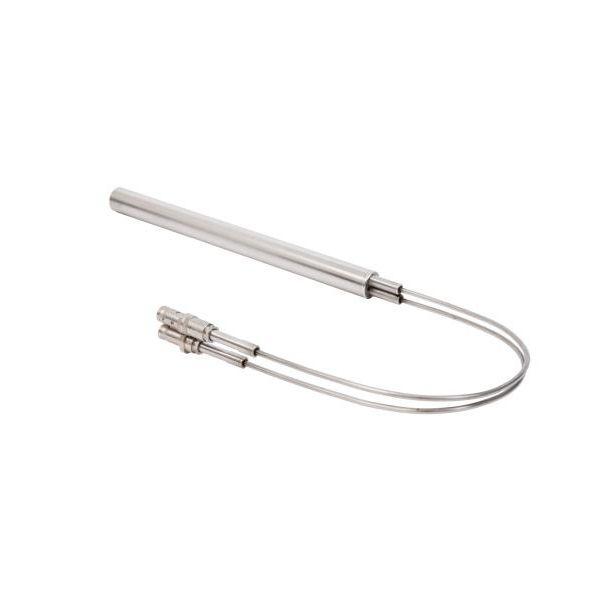


Neutron detectors
As a neutron has no charge, a neutron detector incorporates a neutron-to-ionisation particle converter.
Read more
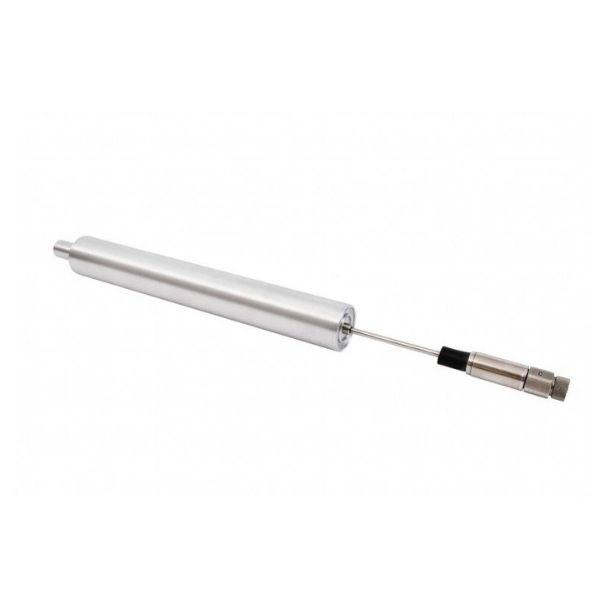

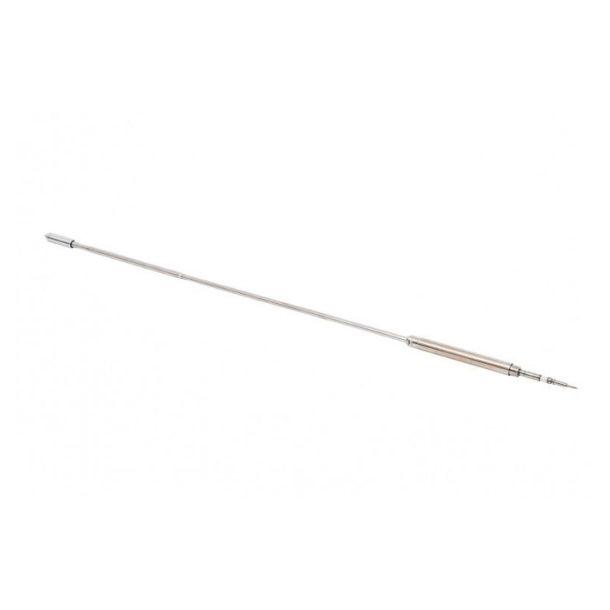

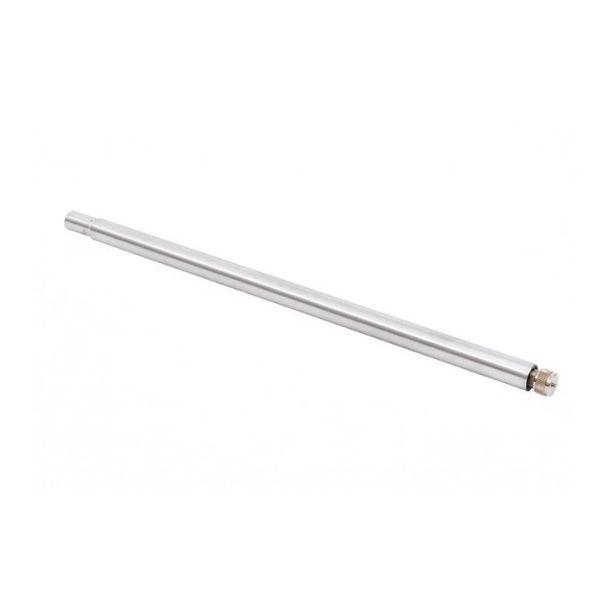

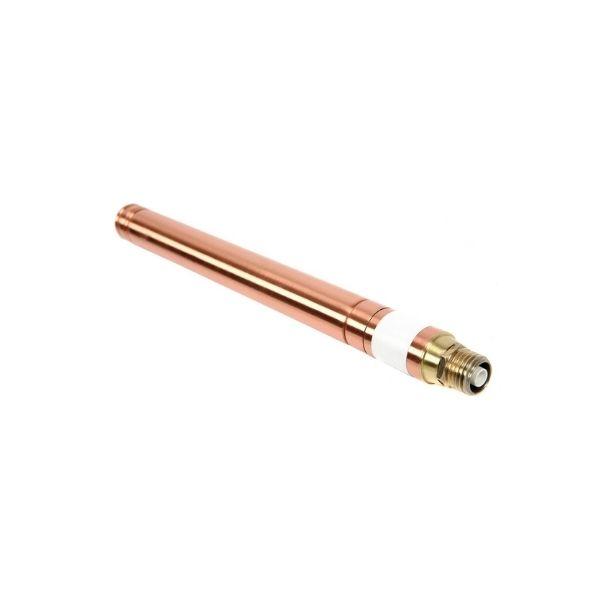

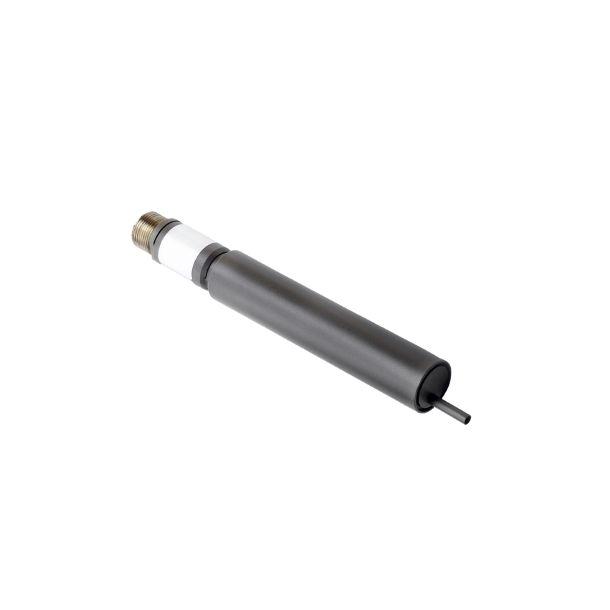

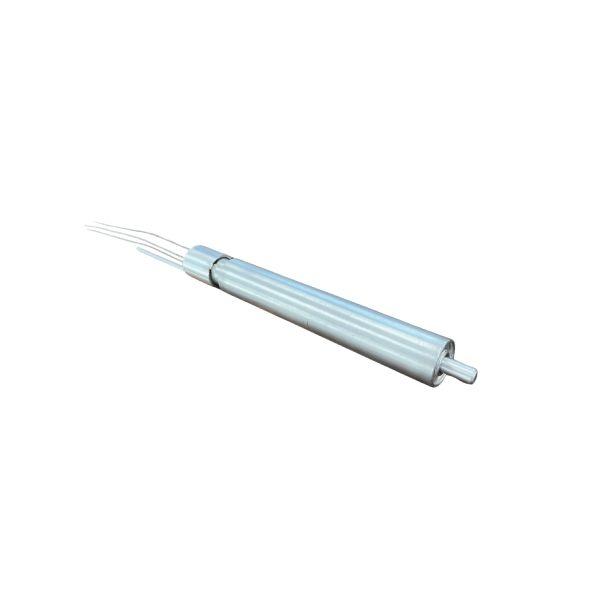


Mineral insulated extensions
Extremely resistant mineral-insulated (MI) cable extensions and connectors
Read more
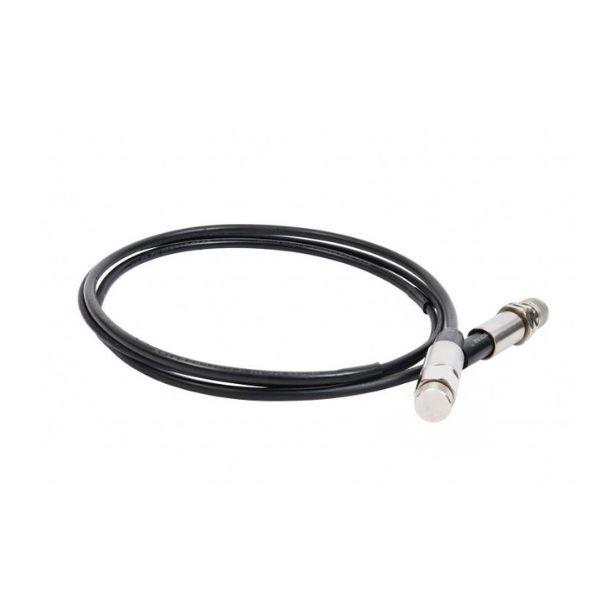

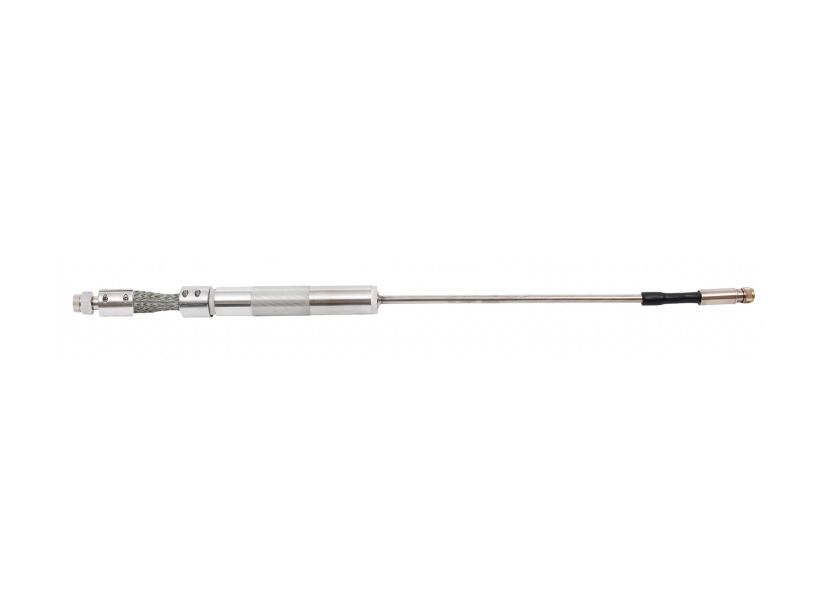
Frequently asked questions
What determines usable life in a detector?
A detector is usable so long as it remains sensitive to neutrons and capable of transmitting sufficient signals to be used by the electronics. The sensitivity of the detector will gradually decrease over time as it is exposed to thermal neutron flux, and the detector will remain viable as long as the electronics allow for the decrease in sensitivity. For B-10 lined proportional counters the gas internal to the detector is vital to linear performance of the detector and is subject to degradation during operation in high radiation environments. Exosens’ proportional counters may include an additional reservoir of proportional gas which extends detector life (up to ~5 x 1018 n/cm2) substantially, making total lifetime greater than the life of similar detectors without this reservoir and significantly longer than BF3 counters.
What role does temperature play in detector operation?
Detector operation can be significantly affected as the ambient temperature they are exposed to increases above 400 C, by several different mechanisms. The internal gases used to ensure linear operation of the detector must be carefully chosen to ensure they can remain chemically unchanged at these high temperatures. Further, as temperature rises above 400 C the internal resistance of the detector may decrease, causing a rise in leakage current which could limit the functional range or decrease the accuracy of the detector. For these concerns Exosens has designed high temperature detectors, utilizing the appropriate gases, materials, and guard ring construction to allow accurate and reliable operation up to 600 C.
What are the differences between a thermal and a fast neutron detector? Why might I use one or the other?
‘thermal’ and ‘fast’ refer to the energy level of the neutron incident on a detector. Thermal neutrons are typically defined as having energy <.025 eV. These lower energy neutrons are more likely to be absorbed by neutron sensitive materials, meaning thermal neutron detectors tend to have higher overall sensitivity. Thermal neutron detectors are designed to generate the majority of their usable signal from interactions with thermal neutrons, where fast neutron detectors are primarily capable of measuring high energy neutrons (>1 MeV). This has applications for research, where it may be important to use multiple detectors to differentiate between neutron energies, or in reactor applications where measurable neutron flux is primarily in high energy neutrons.
Why use a B-10 lined proportional counter vs. a fission chamber for neutron detection?
Each detector type offers unique characteristics which suit it to a particular application. B-10 lined proportional counters offer excellent sensitivity to thermal neutrons, allowing them to achieve sufficient count rates in low neutron fluxes. For example, this feature makes the use of B-10 proportional counters attractive as monitors during initial reactor criticality, where the increased detector sensitivity ensures that smaller, less expensive, start-up sources can be installed in the reactor core. Fission chambers, in contrast, have lower sensitivity to thermal neutrons but have superior resistance to gamma ray interference and offer the capability to operate over many decades of neutron flux. This feature makes fission chambers the ideal choice as wide range monitors of reactor power. The Exosens technical team is happy to work with customers to determine which detector type makes the most sense in each customer application.
Why do some detectors include integrated mineral insulated cabling instead of a standard connector?
Integrating a long mineral insulated cable with the body of the detector is ideal for the severe operating environments (high radiation level, humidity, vibration, high temperature) to maximize reliability and life of the instrument. Exosens recommends the use of integral cable for nuclear power applications to ensure trouble-free long-term operation. In mild environments, or in applications which otherwise do not permit integral cabling, Exosens is able to offer detectors with connection directly at the connector body.
What is the difference between coaxial and triaxial cables? How will I know which is best for my application?
Triaxial cables provide additional screening against unwanted sources of noise compared to coaxial cables- EMI/RFI interference and potential ground loops for small signals can be minimized, although this comes at a trade-off more difficult mechanical construction, lead-time, and cost. Typically, coaxial cables are sufficient for most nuclear applications but unusual, demanding, or unique applications may require the use of a triaxial cable solution. The Exosens team has experience both working with our clients in determining the correct cable solution and qualifying the solution for use in industry.
Technologies
See all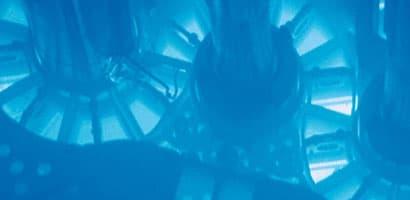
Gamma and Neutron technology
Gamma and Neutron detection technology is a cutting-edge field that significantly contributes to nuclear safety and research.
Learn more about radiation detector and nuclear instrumentation
Precision Radiation Detection Solutions
Exosens’ radiation detectors are built to deliver accurate, real-time measurements of ionizing radiation, even in the most demanding environments. From nuclear power plants and research reactors to radioactive waste storage and fuel cycle facilities, Exosens detectors ensure safety, operational integrity, and compliance. Our technology is designed with precision in mind, offering unmatched sensitivity to detect even the smallest levels of radiation.
- High-sensitivity neutron detectors for reactor control and neutron flux monitoring
- Gamma radiation detectors for dose rate and area monitoring
- Radiation-hardened designs for harsh and high-temperature conditions
- Modular detection systems adaptable to various nuclear applications
Built for Demanding Nuclear Environments
Every detector we manufacture is engineered for long-term performance in extreme conditions. They are resistant to high radiation fields, elevated temperatures, and electromagnetic interference. Whether deployed in in-core reactor instrumentation, area radiation monitoring, or environmental surveillance, Exosens detectors are trusted to perform when and where it matters most.
Our detectors are engineered for:
- In-core reactor instrumentation
- Environmental and area radiation monitoring
- Spent fuel handling and storage facilities
- Small modular reactors (SMRs) and advanced reactor designs
Our detectors are built to last, with rugged construction and low maintenance requirements, ensuring dependable performance for mission-critical systems.
Applications Across the Nuclear Industry
Our radiation detection systems are used across a wide range of industries and applications. Nuclear power generation facilities rely on our detectors for continuous monitoring of radiation levels, ensuring safety and regulatory compliance. Research laboratories and universities use them to advance the field of nuclear science. Fuel cycle operators depend on our technology for accurate monitoring during processing, transport, and storage of radioactive materials. From health physics and industrial radiography to advanced modular reactors (SMRs), Exosens provides reliable, adaptable solutions.
Whether you need a standalone neutron detector or a fully integrated radiation monitoring system, Exosens provides scalable solutions to meet your operational needs.
Smart Design Meets Reliable Performance
In addition to technical performance, our detectors are designed to be intuitive and easy to operate. Installation and integration into existing systems are straightforward, with minimal maintenance requirements over time. The user-focused design ensures that operators and engineers can quickly access accurate data and respond effectively to changes in radiation levels.
Supporting Innovation and Scientific Research
At Exosens, we are also committed to supporting innovation through partnerships with research institutions and academic programs. Our detectors are used in scientific projects across the globe, contributing to breakthroughs in nuclear physics, energy development, and radiation protection. As the nuclear industry continues to evolve, Exosens is proud to be at the forefront of technology that supports both safety and progress.
For Further Insight:
To complement its detection systems, Exosens also offers a wide range of radiation detection instruments and monitoring devices adapted to the needs of nuclear operators, research facilities, and medical applications. Whether you're seeking portable survey tools or fixed radiation monitors, our solutions help ensure radiation exposure is controlled and properly tracked.
Our portfolio includes high-precision neutron counters and gamma ray detectors designed to measure radiation levels with outstanding accuracy. For personal protection, our electronic dosimeters provide continuous data on individual dose rates, triggering automatic alarms when threshold values are exceeded.
Radiation originates from many types of source, and our detectors are engineered to handle everything from background light interference to intense charge environments near reactors or hot cells. Each instrument is developed with ease of use and integration in mind, offering a simple solution for complex monitoring challenges.
As a key partner in the nuclear sector, Exosens provides expert support and after-sales service to guarantee performance and compliance throughout the life cycle of your systems. Our high-resolution ray detectors and advanced dosimeters are essential tools to safeguard operations in challenging environments, ensuring every survey delivers meaningful and actionable results. Whether you're using a standalone counter or integrating devices into a broader safety system, Exosens technologies are built for resilience and reliability.
What's new in Nuclear Instrumentation?
See all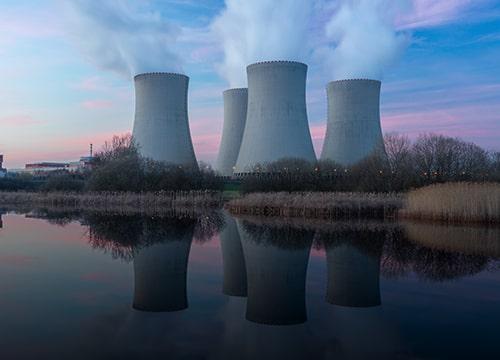
Oct 09th 2025
High-Temperature Detectors for Next Generation Reactors
Proven reliability up to 800°C and beyond for SMR and AMR applications. Built on the combined legacy of Photonis and Centronic—80+ years of neutron detection excellence.
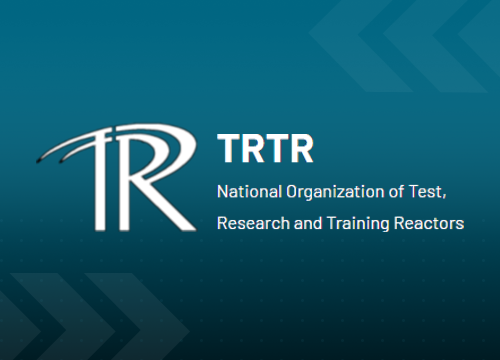
College Station .
FROM Sep 08th 2025 TO Sep 12th 2025
TRTR exhibition 2025
Join Exosens at the 2025 TRTR Annual Meeting, hosted by the Texas A&M Engineering Experiment Station Nuclear Engineering & Science Center.

Paris.
FROM Nov 04th 2025 TO Nov 06th 2025
WNE 2025
Join Exosens at the World Nuclear Exhibition (WNE) 2025, the leading global event for the civil nuclear industry, taking place at Parc des Expositions Villepinte in Paris, France.





